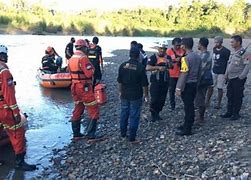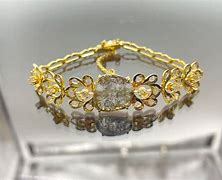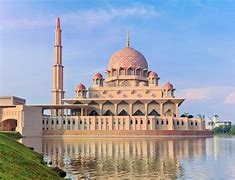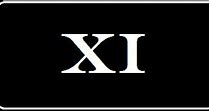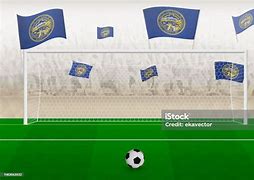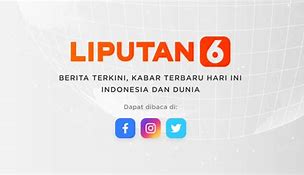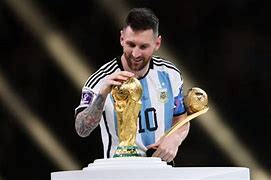
Association football tournament in Qatar
"FIFA 2022" redirects here. For the video game, see
International football competition
The 2022 FIFA World Cup was the 22nd FIFA World Cup, the quadrennial world championship for national football teams organized by FIFA. It took place in Qatar from 20 November to 18 December 2022, after the country was awarded the hosting rights in 2010.[2] It was the first World Cup to be held in the Middle East and Persian Gulf countries, and the second held entirely in Asia after the 2002 tournament in South Korea and Japan.[A]
This tournament was the last with 32 participating teams, with the number of teams being increased to 48 for the 2026 edition. To avoid the extremes of Qatar's hot climate,[B] the event was held in November and December instead of during the traditional months of May, June, or July.[C] It was held over a reduced time frame of 29 days with 64 matches played in eight venues across five cities. Qatar entered the event—their first World Cup—automatically as the host's national team, alongside 31 teams determined by the qualification process.
Argentina were crowned the champions after winning the final against the title holder France 4–2 on penalties following a 3–3 draw after extra time. It was Argentina's third title and their first since 1986, as well as being the first nation from outside of Europe to win the tournament since 2002. French player Kylian Mbappé became the first player to score a hat-trick in a World Cup final since Geoff Hurst in the 1966 final and won the Golden Boot as he scored the most goals (eight) during the tournament. Mbappé also became the first player to score in two consecutive finals since Vavá of Brazil did the same in 1958 and 1962.
Argentine captain Lionel Messi was voted the tournament's best player, winning his second Golden Ball. The tournament has been considered exceptionally poetic as the capstone of his career, with the win fulfilling for some commentators a previously unmet criterion to be regarded as the greatest player of all time.[5] Teammates Emiliano Martínez and Enzo Fernández won the Golden Glove, awarded to the tournament's best goalkeeper; and the Young Player Award, awarded to the tournament's best young player, respectively. With 172 goals, the tournament set a record for the highest number of goals scored in the 32-team format, with every participating team scoring at least one goal.
The choice to host the World Cup in Qatar attracted significant criticism, with concerns raised over the country's treatment of migrant workers, women, and members of the LGBT community, as well as Qatar's climate, lack of a strong football culture, scheduling changes, and allegations of bribery for hosting rights and wider FIFA corruption.[D]
The FIFA World Cup is a professional football tournament held between national football teams, organised by FIFA.[14][15] The tournament, held every four years, was first played in 1930 in Uruguay,[16] and has been contested by 32 teams since the 1998 event.[16] The tournament was contested with eight round-robin groups followed by a knockout round for 16 teams.[17] The defending champions were France, who defeated Croatia 4–2 in the 2018 FIFA World Cup Final.[18][19] The event was scheduled to take place under a reduced length,[20] from 20 November to 18 December in Qatar.[21][22][23] Being held in Qatar, it was the first World Cup tournament to be held in the Arab world.[24] Spectators were not required to follow most COVID-19 restrictions such as social distancing, wearing masks, and negative tests.[25]
Unlike previous FIFA World Cups, which are typically played in June and July, because of Qatar's intense summer heat and often fairly high humidity,[3][22][26] the 2022 World Cup was played in November and December.[6][27] As a result, the World Cup was unusually staged in the middle of the seasons of many domestic association football leagues, which started in late July or August, including all of the major European leagues, which had been obliged to incorporate extended breaks into their domestic schedules to accommodate the World Cup. Major European competitions had scheduled their respective competitions group matches to be played before the World Cup, to avoid playing group matches the following year.[28]
The match schedule was confirmed by FIFA on 15 July 2020.[29] The group stage was set to begin on 21 November, with four matches every day. Later, the schedule was tweaked by moving the Qatar vs Ecuador game to 20 November, after Qatar lobbied FIFA to allow their team to open the tournament.[30][31][32] The final was played on 18 December 2022, National Day, at Lusail Stadium.[29][33] Unlike previous tournaments where the match venues and kick-off times for each fixture were set prior to the draw, the assignment of group fixtures for each matchday to a specific venue and kick-off time was only made after the final draw, with the teams of each specific fixture known. This was due to the close proximity of the venues, which allowed the organizers to optimize stadium allocation for spectators and kick-off times for television audiences.[29]
The matches for each group were allocated to the following stadiums:[33]
FIFA confirmed the group stage venue and kick-off times on 1 April 2022, following the draw.[34][35]
In April 2022, FIFA announced the prizes for all participating nations. Each qualified team received $1.5 million before the competition to cover preparation costs with each team receiving at least $9 million in prize money. This edition's total prize pool was $440 million, $40 million greater than the prize pool of the previous tournament.[36]
The tournament featured new substitution rules whereby teams could make up to five substitutions in normal time, and an additional substitution in extra time.[37][38][39] In addition, it was the first World Cup to feature concussion substitutions, whereby each team was permitted to use a maximum of one concussion substitute during a match. A concussion substitution did not count towards a team's quota of regular substitutions.[40] Iranian goalkeeper Alireza Beiranvand suffered a concussion in his country's opening match against England and was replaced by Hossein Hosseini. This was the first use of a dedicated concussion substitute during a World Cup.[41]
The bidding procedure to host the 2018 and 2022 FIFA World Cups began in January 2009. National associations had until 2 February 2009 to register interest.[42] Initially, 11 bids were made for the 2018 FIFA World Cup, but Mexico withdrew from proceedings,[43][44] and Indonesia's bid was rejected by FIFA in February 2010 after the Indonesian Football Association failed to submit a letter of Indonesian government guarantee to support the bid.[45]
After UEFA were guaranteed to host the 2018 event, members of UEFA were no longer in contention to host in 2022.[46] There were five bids remaining for the 2022 FIFA World Cup: Australia, Japan, Qatar, South Korea, and the United States. The 22-member FIFA Executive Committee convened in Zürich, Switzerland, on 2 December 2010 to vote to select the hosts of both tournaments.[47] Two FIFA executive committee members were suspended before the vote in relation to allegations of corruption regarding their votes.[48] The decision to host the 2022 World Cup in Qatar, which was graded as having "high operational risk",[49] generated criticism from media commentators.[50] It was criticised by many as being part of the FIFA corruption scandals,[51] which led to the 2015 FIFA corruption case.
The voting patterns were as follows:[52]
Inter-confederation play-off
The inter-confederation play-offs was determined by a draw held on 26 November 2021. The AFC fourth round winners was drawn against the fifth-placed team from CONMEBOL qualification.[30] The play-off was played also as a single match in Qatar on 13 June 2022.[31]
The following six teams from AFC qualified for the final tournament.
1 Italic indicates hosts for that year.
Australia qualified as a member of the
in 1974 and 2006 (qualifying took place until 2005 and they left the OFC and joined the AFC in 2006).
There were 676 goals scored in 229 matches, for an average of 2.95 goals per match.
Below are full goalscorer lists for each round:
International football competition
The European section of the 2022 FIFA World Cup qualification acted as qualifiers for the 2022 FIFA World Cup, to be held in Qatar, for national teams that are members of the Union of European Football Associations (UEFA).[1] A total of 13 slots in the final tournament were available for UEFA teams.[2]
All 55 FIFA-affiliated national teams from UEFA entered qualification.
On 9 December 2019, the World Anti-Doping Agency initially handed Russia a four-year ban from all major international sporting events, after RUSADA was found non-compliant for handing over manipulated lab data to investigators.[3] However, the Russia national team could still enter qualification, as the ban only applies to the World Cup proper as a world championship. The WADA ruling allowed athletes who were not involved in doping or the coverup to compete, but prohibited the use of the Russian flag and anthem at major international sporting events.[4] An appeal to the Court of Arbitration for Sport was filed,[5] but WADA's decision was upheld though reduced to a two-year ban.[6] The CAS ruling also allowed the name "Russia" to be displayed on uniforms if the words "Neutral Athlete" or "Neutral Team" have equal prominence.[7] If Russia had qualified for the tournament, its players would not have been able to use their country's name alone, flag or anthem at the World Cup, as a result of the nation's two-year ban from world championships and Olympic Games in all sports.[7]
On 27 February 2022, after the threat of boycotts by the Czech Republic, Poland and Sweden amid the Russian invasion of Ukraine,[8] FIFA prohibited the Russia national football team from playing home matches in Russia; the team would have to play matches behind closed doors at neutral sites. In addition, the team would have been prohibited from competing under the name, flag, or national anthem of Russia, and had to compete under the name "Football Union of Russia" (RFU).[9] On 28 February, however, following a recommendation by the International Olympic Committee (IOC), FIFA suspended the participation of Russia.[10][11][12] Poland were subsequently given a walkover for their play-off semi-final match scheduled against Russia.[13] The Russian Football Union announced they would appeal the decision to the Court of Arbitration for Sport.[14] Their request for a temporary lift of the ban was rejected on 18 March.[15]
The qualification format was confirmed by the UEFA Executive Committee during their meeting in Nyon, Switzerland, on 4 December 2019.[16][17] The qualification would depend, in part, on results from the 2020–21 UEFA Nations League, although to a lesser degree than the 2018–19 UEFA Nations League had on qualification for UEFA Euro 2020. The structure maintained UEFA's usual 'group stage/play-off stage' structure, with only the specific format of the play-offs amended.[18][19][20]
On 4 December 2019, the UEFA Executive Committee initially approved the use of the video assistant referee system for the qualifiers.[18] However, VAR was not implemented at the start of qualification due to the impact of the COVID-19 pandemic on operational and logistical capabilities.[21] On 5 August 2021, UEFA announced that the VAR system would be used for the remainder of qualification, starting from September 2021.[22]
Below is the schedule of the European qualifiers for the 2022 FIFA World Cup.[17]
In March 2020, UEFA announced that the two matchdays planned to take place in June 2021 would be moved following the rescheduling of UEFA Euro 2020 to June and July 2021 due to the COVID-19 pandemic.[23] To allow for the completion of the qualifying group stage in November 2021 as scheduled, UEFA announced on 24 September 2020 that the March and September 2021 windows in the FIFA International Match Calendar were expanded from two to three matchdays.[24][25] The changes to the International Match Calendar for March and September 2021, which extended each window by one day, were approved by the FIFA Council on 4 December 2020.[26]
The original schedule of the qualifying group stage, as planned before the pandemic, was as follows.[17]
The draw for the first round (group stage) was held in Zürich, Switzerland, on 7 December 2020, 18:00 CET (UTC+1).[27][28][29][30][31][32] However, due to the COVID-19 pandemic, the draw occurred as a virtual event without any representatives of member associations present. It was originally planned to be held on 29 November 2020.[33] On 18 June 2020, the UEFA Executive Committee approved the draw regulations for the qualifying group stage.[34] The draw was presented by Spanish journalist Cristina Gullón and conducted by FIFA's acting director of competitions, Jaime Yarza.[35] He was assisted by former footballers Daniele De Rossi and Rafael van der Vaart, who drew the balls from the pots.[36]
The 55 teams were seeded into six pots based on the November 2020 FIFA World Rankings, after the conclusion of the league phase of the 2020–21 UEFA Nations League. Pots 1 to 5 contained ten teams, while Pot 6 contained five teams. The teams were drawn into ten groups: five groups of five teams (Groups A–E) and five groups of six teams (Groups F–J). The draw started with Pot 1 and was completed with Pot 6, from where a team was drawn and assigned to the first available group in alphabetical order. Therefore, each six-team group contains one team from each of the six pots, while each five-team group contains one team from each of the first five pots.[37]
The following restrictions were applied with computer assistance:[25][38][39]
Teams were allocated to seeding pots as follows (November 2020 FIFA Rankings shown in second column).[40][41]
Other teams were eliminated after the first round
Advanced to the second round (play-offs) as a group runner-up, later suspended
The fixture list was confirmed by UEFA on 8 December 2020, the day following the draw.[42][43][44] Qatar were partnered with the five-team Group A, which enabled the 2022 FIFA World Cup hosts to play centralised friendlies against these countries on their "spare" match dates. However, these friendlies did not count in the qualifying group standings.[45][46]
The second round (play-offs) was contested by the ten group runners-up and the best two Nations League group winners, based on the Nations League overall ranking,[47] who finished outside the top two of their qualifying group. They were separated into three play-off paths, with each path featuring two single-leg semi-finals and one single-leg final. The semi-finals were hosted by the six best-ranked runners-up of the qualifying group stage, while the host of the final was determined by a draw.[48] The semi-finals were played on 24 March and 1 June, and the finals on 29 March and 5 June 2022. The winners of each path qualified for the World Cup.
Inter-confederation play-off
The inter-confederation play-offs was determined by a draw held on 26 November 2021. The fourth-placed team from CONCACAF qualification third round was drawn against the representative team from the OFC.[18] The play-off was played as a single match in Qatar (host country of the World Cup) on 14 June 2022.[19]
The following four teams from CONCACAF qualified for the final tournament.
1 Italic indicates hosts for that year.
There were 345 goals scored in 118 matches, for an average of 2.92 goals per match.
Links to the lists of goalscorers for each round are below:
International football competition
The Asian section of the 2022 FIFA World Cup qualification acted as qualifiers for the 2022 FIFA World Cup held in Qatar for national teams who are members of the Asian Football Confederation (AFC). Apart from Qatar (who qualified automatically as hosts), a total of 4.5 slots (4 direct slots and 1 inter-confederation play-off slot) in the final tournament were available for AFC teams.[1]
The qualification process involved four rounds; the first two doubled as the qualification for the 2023 AFC Asian Cup. Despite qualifying as hosts, Qatar participated in these rounds to seek Asian Cup qualification. The first round would have acted as qualifiers for the cancelled 2020 AFC Solidarity Cup.[2]
The qualification structure is as follows:[3]
All 46 FIFA-affiliated nations from the AFC entered qualification. The FIFA World Rankings of April 2019 were used to determine which nations would compete in the first round. For seeding in the second round and third round draws, the most recent FIFA Rankings prior to those draws will be used.
According to the joint format of the World Cup and Asian Cup qualifiers, both Qatar (as the host nation of the 2022 World Cup) and also entered the second round of the qualifiers.[5]
Timor-Leste was banned from participating in the Asian Cup qualification after being found to have fielded a total of 12 ineligible players in 2019 AFC Asian Cup qualification matches among other competitions.[6] However, as FIFA did not ban them from the World Cup qualifiers, Timor-Leste was allowed to enter the competition, but ineligible to qualify for the Asian Cup.[7]
The schedule of the competition is expected to be as follows, according to the FIFA International Match Calendar.[9][10][11][12][13]
On 9 March 2020, FIFA and AFC announced that the second round matches on matchdays 7–10 due to take place in March and June 2020 were postponed by the COVID-19 pandemic, with the new dates to be confirmed. However, subject to approval by FIFA and AFC, and agreement of both member associations, the matches may be played as scheduled provided that the safety of all individuals involved meets the required standards.[14][15] On 5 June, AFC confirmed that matchdays 7 and 8 were scheduled to take place on 8 and 13 October respectively while matchdays 9 and 10 were also scheduled to kick off on 12 and 17 November.[16] On 12 August, FIFA announced that the matches scheduled for October and November 2020 would be rescheduled to 2021.[17]
On 25 June 2020, FIFA announced that the inter-confederation play-offs, originally scheduled to be played in March 2022, were moved to June.[18]
On 11 November 2020, the AFC Competitions Committee announced that all the Asian qualifiers second round matches should be completed by 15 June 2021 with matchdays 7 and 8 in March 2021 and matchdays 9 and 10 in June 2021 with the final round of the Asian qualifiers beginning in September 2021. Also all 10 matchdays of the Asian qualifiers final round should be finished by the end of March 2022 with the Asian and inter-continental play-offs proposed for the FIFA window of May/June 2022. The Asian play-off for the World Cup in Qatar was proposed as a single match.[19] On the same day, however, FIFA, along with the Bangladeshi and Qatari associations, gave approval to the only second round match originally scheduled for 2020, Qatar v. Bangladesh, which was played on 4 December.[20]
On 19 February 2021, FIFA and AFC postponed the majority of the upcoming matches to June.[21]
The draw for the first round was held on 17 April 2019 at 11:00 MST (UTC+8), at the AFC House in Kuala Lumpur, Malaysia.[22]
The draw for the second round was held on 17 July 2019 at 17:00 MST (UTC+8), at AFC House in Kuala Lumpur, Malaysia.[25]
Qualified for the third round (except Qatar) and Asian Cup as winners or top five runners-up
Advanced to the Asian Cup third qualifying round as bottom three runners-up, third-placed, fourth-placed and top three fifth-placed team
Advanced to the AFC Asian Cup qualifying play-off round.
Denotes a team that withdrew.
North Korea withdrew from the qualifying round due to safety concerns related to the COVID-19 pandemic, therefore the results of their matches were excluded from the group standings.[26][27]
Team selection and seeding
The ten runners-up from the first round advanced to the play-offs. Based on the results from the qualifying group stage, the six best-ranked teams were seeded, while the bottom four were unseeded in the semi-final draw.
Rules for classification: Counting only matches against teams ranked first to fifth in the group, 1. Points; 2. Goal difference; 3. Goals scored; 4. Away goals scored; 5. Wins; 6. Away wins; 7. Lower disciplinary points total; 8. Position in
The best two Nations League group winners that finished outside the top two of their qualifying group advanced to the play-offs and were unseeded in the semi-final draw.
Following the completion of the UEFA first round, the twelve teams that advanced to the play-offs were drawn into three paths of four teams on 26 November 2021, 17:00 CET, in Zürich, Switzerland.[49][50][51][52][53] The following procedure was applied in the draw:[48][54]
For political reasons related to the Russo-Ukrainian War, Russia and Ukraine could not be drawn into the same play-off path.[55]
The six runners-up with the best group stage performance were seeded in the semi-final draw, while the remaining four runners-up and two teams advancing via the Nations League were unseeded. The seedings were as follows:
Team has qualified for World Cup
Team failed to qualify
Country not a UEFA member
The following 13 teams from UEFA qualified for the final tournament.
1 Bold indicates champions for that year. Italic indicates hosts for that year.
. A separate team for
also participated in qualifications during this time, having only qualified in
There were 781 goals scored in 258 matches, for an average of 3.03 goals per match.
Below are full goalscorer lists for all groups and the play-off rounds:
Move to November and December
Owing to the climate in Qatar, concerns were expressed over holding the World Cup in its traditional time frame of June and July.[6] In October 2013, a task force was commissioned to consider alternative dates and report after the 2014 FIFA World Cup in Brazil.[361] On 24 February 2015, the FIFA Task Force proposed that the tournament be played from late November to late December 2022,[362] to avoid the summer heat and also avoid clashing with the 2022 Winter Olympics in February, the 2022 Winter Paralympics in March and Ramadan in April.[363][364]
The notion of staging the tournament in November was controversial because it would interfere with the regular season schedules of some domestic leagues around the world. Commentators noted the clash with the Christian Christmas season was likely to cause disruption, while there was concern about how short the tournament was intended to be.[365] FIFA executive committee member Theo Zwanziger said that awarding the event to Qatar was a "blatant mistake".[366]
Frank Lowy, chairman of Football Federation Australia, said that if the 2022 World Cup were moved to November and thus upset the schedule of the A-League, they would seek compensation from FIFA.[367] Richard Scudamore, chief executive of the Premier League, stated that they would consider legal action against FIFA because a move would interfere with the Premier League's popular Christmas and New Year fixture programme.[368] In 2015, FIFA confirmed that the final would be played in December.[369] Critics condemned the Euro-centrism of these allegations, and questioned why global sporting events must be held within the traditional European summer season.[370]
Russian participation
On 9 December 2019, the World Anti-Doping Agency (WADA) handed Russia a four-year ban from all major sporting events, after RUSADA was found non-compliant for handing over manipulated lab data to investigators.[392] The Russian national team were still permitted to enter qualification, as the ban only applied to the final tournament to decide the world champions. A team representing Russia, which used the Russian flag and anthem, could not participate under the WADA decision whilst the ban was active.[393] The decision was appealed to the Court of Arbitration for Sport,[394] and on 17 December 2020, Russian teams were banned from competing at world championships organized or sanctioned by a WADA signatory until 16 December 2022, the day before the third place play-off.[395]
After the Russian invasion of Ukraine, Russia's participation was further thrown into doubt. On 24 February 2022, the three teams in Russia's qualifying path—Czech Republic, Poland, and Sweden—announced their unwillingness to play any matches in Russian territory.[396] Poland and Sweden extended the boycott on 26 February to any qualifying games, and the Czech Republic made the same decision one day later.[397][398][399]
On 27 February 2022, FIFA announced a number of sanctions impacting Russia's participation in international football. Russia was prohibited from hosting international competitions, and the national team was ordered to play all home matches behind closed doors in neutral countries. Under these sanctions, Russia would not be allowed to compete under the country's name, flag, or national anthem; similarly to the Russian athletes' participation in events such as the Olympics,[400] the team would compete under the abbreviation of their national federation, the Russian Football Union ("RFU"), rather than "Russia".[401] The next day, FIFA decided to suspend Russia from international competitions "until further notice", including its participation in the 2022 FIFA World Cup.[402]
Bidding corruption allegations, 2014
Some allegations were made over the role of former football official Mohammed bin Hammam played in securing the bid.[371] A former employee of the Qatar bid team alleged that several African officials were paid $1.5 million by Qatar.[372] She retracted her claims, but later said that she was coerced to do so by Qatari bid officials.[373][374] In March 2014, it was discovered that former CONCACAF president Jack Warner and his family were paid almost $2 million from a firm linked to Qatar's successful campaign.[375]
The Sunday Times published bribery allegations based on a leak of millions of secret documents.[376] Five of FIFA's six primary sponsors, Sony, Adidas, Visa, Hyundai, and Coca-Cola, called upon FIFA to investigate the claims.[377][378] Jim Boyce, vice-president of FIFA, stated he would support a re-vote to find a new host if the corruption allegations are proven.[379][380] FIFA completed a lengthy investigation into these allegations and a report cleared Qatar of any wrongdoing. Despite the claims, the Qataris insisted that the corruption allegations were being driven by envy and mistrust while Blatter said it was fueled by racism in the British media.[381][382]
In the 2015 FIFA corruption case, Swiss officials, operating under information from the United States Department of Justice, arrested many senior FIFA officials in Zürich and seized physical and electronic records from FIFA's main headquarters. The arrests continued in the United States, where several FIFA officers were arrested, and FIFA buildings were raided. The arrests were made on the information of at least a $150 million corruption and bribery scandal.[383] From those arrested, $40 million was forfeited under guilty pleas.[384] In 2022, the president of the El Salvador soccer association, Reynaldo Vasquez, was sentenced to 16 months in prison in connection to over $350,000 in bribes.[385]
Following the corruption case, Phaedra Almajid, the former media officer for the Qatar bid team, claimed that the allegations would result in Qatar not hosting the World Cup.[386] In an interview published on the same day, Domenico Scala, the head of FIFA's Audit and Compliance Committee, stated that "should there be evidence that the awards to Qatar and Russia came only because of bought votes, then the awards could be cancelled."[387][388]
In 2014, FIFA appointed Michael Garcia as its independent ethics investigator to look into bribery allegations against Russia and Qatar. Garcia investigated all nine bids and eleven countries involved in the 2018 and 2022 bids.[389] At the end of the investigation, Garcia submitted a 430-page report. The FIFA governing body then appointed a German judge, Hans Joachim Eckert, who reviewed and presented a 42-page summary of the report two months later. The report cleared Qatar and Russia of bribery allegations, stating that Qatar "pulled Aspire into the orbit of the bid in significant ways" but did not "compromise the integrity" of the overall bid process.[390] Michael Garcia reacted almost immediately, stating that the report is "materially incomplete" and contains "erroneous representations of the facts and conclusions".[390]
In 2017, a German journalist Peter Rossberg claimed to have obtained the report and wrote that it "does not provide proof that the 2018 or 2022 World Cup was bought" and stated that he would publish the full report. This forced FIFA to release the original report. The full report did not provide any evidence of corruption against the host of the 2022 World Cup but stated that bidders tested the rules of conduct to the limit.[391]
Inter-confederation play-off
The inter-confederation play-offs was determined by a draw held on 26 November 2021. The winner from OFC qualification was drawn against the fourth-placed team from CONCACAF qualification third round.[26] The play-off was played as a single match in Qatar on 14 June 2022.[27]
There were 37 goals scored in 11 matches, for an average of 3.36 goals per match.
International football competition
The North, Central American and Caribbean section of the 2022 FIFA World Cup qualification[1] acted as the qualifiers for the 2022 FIFA World Cup, to be held in Qatar, for national teams which are members of the Confederation of North, Central American and Caribbean Association Football (CONCACAF). Three direct slots and one inter-confederation play-off slot in the final tournament were available for CONCACAF teams.[2]
On 10 July 2019, CONCACAF announced a restructured qualifying format for the World Cup.[3] After CONCACAF initially announced in March 2018 that they would use the CONCACAF Ranking Index to determine the seeding of CONCACAF teams for qualifying to international tournaments,[4] it was determined that FIFA Rankings would be used instead.
However, on 25 June 2020, following FIFA's decision to postpone the September 2020 international window because of the COVID-19 pandemic, CONCACAF noted that "the challenges presented by postponements to the football calendar, and the incomplete FIFA rankings cycle in our confederation, means our current World Cup qualifying process has been compromised and will be changed."[6]
On 27 July 2020, CONCACAF announced a new qualifying format for the World Cup.[7]
All 35 FIFA-affiliated national teams from CONCACAF originally entered qualification. Teams were seeded based on their July 2020 FIFA rankings. However, Saint Lucia later withdrew, reducing the total number of teams to 34.
On 25 June 2020, FIFA announced that the inter-confederation play-offs, originally scheduled to be played in March 2022, were moved to June 2022, and that the June 2021 window would be extended from two matchdays to four for CONCACAF.[9] On 8 September 2020, CONCACAF announced that the matches scheduled for October and November 2020 would be rescheduled to 2021.[10] On 4 December 2020, FIFA announced that the September 2021, October 2021, January 2022 and March 2022 windows in the FIFA International Match Calendar would each be extended by one day to allow for three matchdays to be played per window.[11][12] On the same day, CONCACAF announced the revised qualification schedule, which was updated on 16 June 2021.[13]
The six highest ranked teams of the first round were pre-seeded into groups A through F. Teams in their groups played each other once, a total of four matches; two home and two away matches. The draw for the first round was held on 19 August 2020, 19:00 CEST (UTC+2), at the FIFA headquarters in Zürich, Switzerland.[14][15] The top team from each group advanced to the second round. The COVID-19 pandemic caused many "home" games to be played at neutral venues.
The second round saw the six group winners from the first round playing in three home-and-away ties of predetermined pairings. The winners advanced to the third round.
As a result of CONCACAF's revision to their World Cup qualifying format, the traditional Hexagonal with six teams and ten games per team was expanded to eight teams and fourteen games per team for the final and decisive round. The top five CONCACAF teams in the July 2020 FIFA rankings entered in the third round, joining the three winners of the second round. The draw to determine the schedule for the third round was held on 19 August 2020, 19:00 CEST (UTC+2), at the FIFA headquarters in Zürich, Switzerland.[16][17]
Post-match and legacy
Pundits, commentators, and audiences praised the intensity, stressful atmosphere, and thrilling back-and-forth nature of the match, highlighting the number of goals scored, and with many media outlets spotlighting it as a duel between Paris Saint-Germain teammates Messi and Mbappé.[85][86][87][88] The match has since been hailed as one of the most exciting World Cup finals, and among the greatest football matches ever.[89][90][91][92]
With the victory, Argentina won their third FIFA World Cup title to surpass France and Uruguay, their titles ranking behind only Brazil's five and the four of Italy and Germany. They became the first South American and first non-European side to win the World Cup since Brazil in 2002, and the first reigning champions of the Copa América to win the World Cup.[94] Having won on penalties against the Netherlands in the quarter-finals, Argentina became the first team to have won on that method twice en route to the title.[95] It was the tenth World Cup title for a South American side, and the eighth South American victory in eleven finals facing European opposition. France became the third defending champions to lose in the following final, after Argentina in 1990 and Brazil in 1998.[96] The match was the third FIFA World Cup final to be decided by a penalty shoot-out, after 1994 and 2006, the latter of which France lost to Italy.[97] This meant that France had not won on penalties in all competitions since the 1998 World Cup quarter-final against Italy. The six goals in the final brought the total number of goals in the tournament to a record 172, surpassing the 171 goals scored in 1998 and 2014.[98]
FIFA president Gianni Infantino was present on the pitch stage during the awards ceremony to hand out the medals and present the trophy to the Argentine captain Lionel Messi. He was joined by Qatari Emir Tamim bin Hamad Al Thani, French president Emmanuel Macron, Argentine Football Association president Claudio Tapia, French Football Federation president Noël Le Graët, CONMEBOL president Alejandro Domínguez and UEFA president Aleksander Čeferin.[99] Sergio Batista and Nery Pumpido, World Cup winners with Argentina in 1986, brought the trophy onto the pitch for the ceremony.[100] Before being presented with the trophy by the Emir and Infantino, Messi was given a bisht to wear by the Emir prior to the trophy celebration. The trophy presentation had scenery unlike previous tournaments, with confetti replaced by pyrotechnics and lights with a backdrop of some orchestral cinematic music.[101]
Messi was named as the player of the match[81] and won his second Golden Ball award after 2014 as the best player of the tournament, becoming the first (and so far only) player to receive the award twice.[102] He also won the Silver Boot award with the second-most goals at the tournament, seven.[103] Messi's appearance in the final, his 26th World Cup game, meant he surpassed Lothar Matthäus as the player with the most appearances in the World Cup.[104] With his goals, Messi became the second player to score in the round of 16, quarter-finals, semi-finals and final of a World Cup tournament, after Hungary's György Sárosi in 1938, and the only player to score in all of those knockout rounds as well as the group stage.[105] Having scored once in the previous final, Mbappé's hat-trick made him the highest-scoring player in the final of the World Cup with four goals, surpassing the three of Hurst, Pelé, Vavá and Zinedine Zidane.[106] In addition, with his three goals, he surpassed Messi to win the Golden Boot award as the top scorer of the tournament with eight goals,[103] the most in a World Cup since Brazil's Ronaldo in 2002, and also was awarded the Silver Ball as the second-best player of the World Cup.[107] Argentina's Emiliano Martínez won the Golden Glove award as the best goalkeeper of the tournament, while his teammate Enzo Fernández won the Young Player Award as the best player at the World Cup who is at most 21 (born on or after 1 January 2001).[102]
In Argentina, celebrations erupted across the country, most notably in the capital Buenos Aires and in Rosario, Messi's hometown.[108] On 20 December, the celebration in the streets of Buenos Aires after the arrival of the players of Argentina gathered a crowd estimated by local media at over four million people, forcing the team to be airlifted by helicopter out of their bus.[109] On 22 December, the French Football Federation confirmed to have lodged a formal complaint against the Argentine goalkeeper Emiliano Martínez for unsporting behaviour which included incidents such as a sarcastic prayer for silence for French forward Kylian Mbappé in the Argentine locker room after the match, as well as being seen holding and laughing at a toy with a facial cut of Mbappé's face stuck to it during the Argentine victory parade.[110][111] In France, riots erupted across the country in cities including Paris, Lyon and Nice;[112] these were very similar to those after their victory in 2018, as well as after victories against England and Morocco earlier in the tournament. Some French players like Kingsley Coman, Randal Kolo Muani and Aurélien Tchouaméni were racially abused online due to their performances by their own fans.[113] Within 48 hours of Messi posting, the Instagram post with the World Cup trophy had surpassed 75 million likes, and in doing so, it became the most-liked social media post ever across all social media platforms surpassing the previous most-liked Instagram post, the world record egg.[114][115]
International football competition
The Oceanian section of the 2022 FIFA World Cup qualification acted as qualifiers for the 2022 FIFA World Cup, to be held in Qatar, for national teams which are members of the Oceania Football Confederation (OFC). A total of 0.5 slots in the final tournament were available for OFC teams, which equated to one inter-confederation play-off slot.[1]
Due to the COVID-19 pandemic in Oceania, the qualification was held as a centralised tournament in Qatar (host country of the World Cup) from 17 to 30 March 2022.[2]
In November 2021, the OFC confirmed the format for the qualifiers in response to the COVID-19 pandemic.[3] The qualifying stage was to be a single match on 13 March 2022 between the two lowest-ranked participating OFC nations in the FIFA World Rankings, with the winner advancing to the group stage, but Tonga withdrew from the qualification match causing Cook Islands to automatically enter the group stage. Then eight remaining teams were drawn into two groups of four, playing single leg round-robin. The top two teams from each group advanced to a single leg knockout stage. The final winner advanced to the inter-confederation play-offs.
On 28 July 2020, the OFC confirmed that the qualifications would involve all eleven OFC teams.[4] On 29 November 2021, the date of the group stage draw, FIFA reported that nine of the eleven FIFA-affiliated national teams from the OFC would enter qualification, as American Samoa and Samoa had withdrawn.[2] On 29 January 2022, two months after the group stage draw but two months before the competition was to begin, Tonga also withdrew due to the 2022 Hunga Tonga–Hunga Ha'apai eruption and tsunami.[5][6] On 19 March 2022, Vanuatu withdrew after the tournament had started due to the majority of players testing positive for COVID-19.[7][8] On 23 March 2022, Cook Islands also withdrew after the tournament had started due to players testing positive for COVID-19.[9]
Qualifying was initially expected to begin in September 2020,[11] but many international matches scheduled for the FIFA window in that month were cancelled in June 2020 due to the COVID-19 pandemic, while the inter-confederation play-offs were also moved from March to June 2022.[12]
In November 2020, the OFC announced a further delay in the qualifying process until June 2021.[13]
In March 2021, the confederation announced that this timeframe would not be achievable either, outlining a potential option organise a competition in January 2022, keeping the FIFA International Match Calendar dates in March available for preparation matches ahead of the inter-confederation play-off in June.[14][15] Fiji and New Caledonia were proposed as possible venues.[16]
By September 2021, continued delays meant that the OFC felt it was "not possible at this time to organise a qualifying competition within the Oceania region" and, as an alternative, they requested FIFA's approval for the qualification to be held in Qatar in March 2022.[17][18] This was confirmed by FIFA on 29 November 2021.[2]
The matches were played at two stadiums in the city of Doha.
A qualification match was due to be held between the two lowest-ranked teams (Tonga and the Cook Islands) to determine the eighth team to compete in the group stage. The match was cancelled after Tonga withdrew due to the effects of the 2022 Hunga Tonga–Hunga Ha'apai eruption and tsunami; the Cook Islands advanced to the group stage.[5]
Tonga withdrew, and therefore the Cook Islands advanced by walkover.
The seven highest ranking OFC teams which entered the competition were given a bye to the group stage alongside the winner of the qualification match. The teams were divided into two groups, each containing four teams. Each team played every other team in their group once in a round-robin format, and the winners and runners-up of each group advanced to the semi-finals.[2]
The group stage draw was held in Zürich, Switzerland, on 29 November 2021, 21:00 CET (30 November, 09:00 NZDT).[19][20] The identity of the qualification match winner was not known at the time of the draw. The draw began with pot 2 and finished with pot 1, with teams being allocated to the groups sequentially (firstly A, then B). The first two teams drawn were assigned to position 4, while the next two were assigned to position 3, and the first two from pot 1 to position 2. The two highest ranked teams, New Zealand and the Solomon Islands, were assigned to positions A1 and B1, and were therefore not drawn in the same group.[21]
The draw resulted in the following groups:
The fixtures for the group stage were decided based on the draw results, as follows:
The result was eventually excluded from the group standings after the withdrawal of the Cook Islands.[9]
The match was cancelled due to a COVID-19 outbreak in the Vanuatu squad.[23] Vanuatu withdrew on 19 March, resulting in the cancellation of the remaining matches involving them.[7]
The match was cancelled due to a COVID-19 outbreak in the Cook Islands squad.[24] The Cook Islands withdrew on 23 March.[9]
Due to the withdrawals of the other two teams and the cancellation or nullification of all other matches, this match was played as a single-leg play-off, with provisions for extra time and penalties in the event of a tie after normal time.[9]
In the single-leg matches of the final stage, if a match was level at the end of normal playing time, extra time was played (two periods of 15 minutes each) to decide the winner. If still tied after extra time, the match was decided by a penalty shoot-out.[25]
New Zealand defeated Solomon Islands 5–0 and advanced to the inter-confederation play-offs.
The final winner advanced to the inter-confederation play-offs.
LGBT and women's rights
There are no LGBT rights in Qatar, with homosexuality as well as campaigning for LGBTQ+ rights criminalized. As such, when Qatar was selected to host the 2022 FIFA World Cup, the choice to do so in a restrictive nation saw much criticism, with the security of fans,[403] as well as the homophobic football chants of certain nations, were points of discussion.[404] The main controversy came from a last-minute FIFA decision to hand out player punishments to European captains who had months earlier announced their intention to continue wearing rainbow-colored armbands (which began in 2020) in support of anti-discrimination. Typically, kit violations incur a fine, which the teams had said they would pay; on the day of the first match involving one of the teams, FIFA reportedly told the teams that they would receive a yellow card at a minimum for wearing the armbands.[405] Qatari officials stated that all people are welcome as long as they follow the public display of affection laws which apply to everyone.[406][407]
Security officials at stadiums also confiscated items of rainbow clothing and flags featuring rainbows.[408][409] American journalist Grant Wahl was briefly detained for wearing a t-shirt with a rainbow on it.[410] Wahl reportedly received death threats for wearing the shirt, later dying at the stadium.[411][412] Other journalists with Wahl at the time of his death have reported that he began fitting or experiencing a seizure, and called for help himself. They criticized the Qatar Supreme Committee for not providing defibrillators in the stadium, as they had looked for one to try to help Wahl.[413] In response, FIFA said that according to the ambulance service, a defibrillator was made available when paramedics later arrived on scene.[414] An autopsy done on Wahl in New York City later revealed that Wahl died from an aortic aneurysm rupture.[415]
Discrimination against women in Qatar was also criticized.[416][417] Women in Qatar have few freedoms,[416][418] as they must obtain permission from their male guardians to marry, study abroad on government scholarships, work in many government jobs, travel abroad, receive certain forms of reproductive health care, and act as the primary guardian of children, even if they are divorced.[419]
Qatar attracted particular criticism for an incident where a Mexican employee of the World Cup Organizing Committee was accused of allegedly having sex outside of marriage. The woman had previously reported rape, while the male claimed to have been in a relationship with her, after which the woman was investigated for extramarital sex. Women in Qatar face the possible penalty of flagellation and a seven-year prison sentence if convicted for having sex outside of marriage. The criminal case was eventually dropped months after she was allowed to leave Qatar.[420]
In November 2022, there were reports suggesting that the government of Iran were working with Qatari officials to suppress anti-government protests at the 2022 FIFA World Cup,[421] in light of the Mahsa Amini protests. Leaked documents and audio clips suggested that Iranian government officials were in correspondence with Qatari authorities in order to handle possible protesters.[422]
In November 2022, the Qatari government revoked the visas of journalists from a London-based Iranian news channel, Iran International, known for being critical of the regime, who were seeking to cover the World Cup.[423] On 21 November 2022, during the first group stage match from Group B, between Iran and England, attempts were reportedly made by the stadium's security forces to block Iranian fans who wore clothing or carried items bearing slogans that were deemed unsympathetic to the Islamic government of Iran.[424] These included t-shirts and signs with "Woman, Life, Freedom" embedded onto them, Iran's previous flags, or any slogans containing the name of Mahsa Amini.[425] This crackdown continued throughout all of Iran's matches at the World Cup.[421] In addition to removing fans from stadiums, reports showed that officials tried to suppress any filming or photography of possible protests. In one case, Qatari police detained Danish TV presenter, Rasmus Tantholdt, for filming fans with "Woman, Life, Freedom" slogans, some of whom who had been earlier abused by a group of pro-government supporters.[426]






